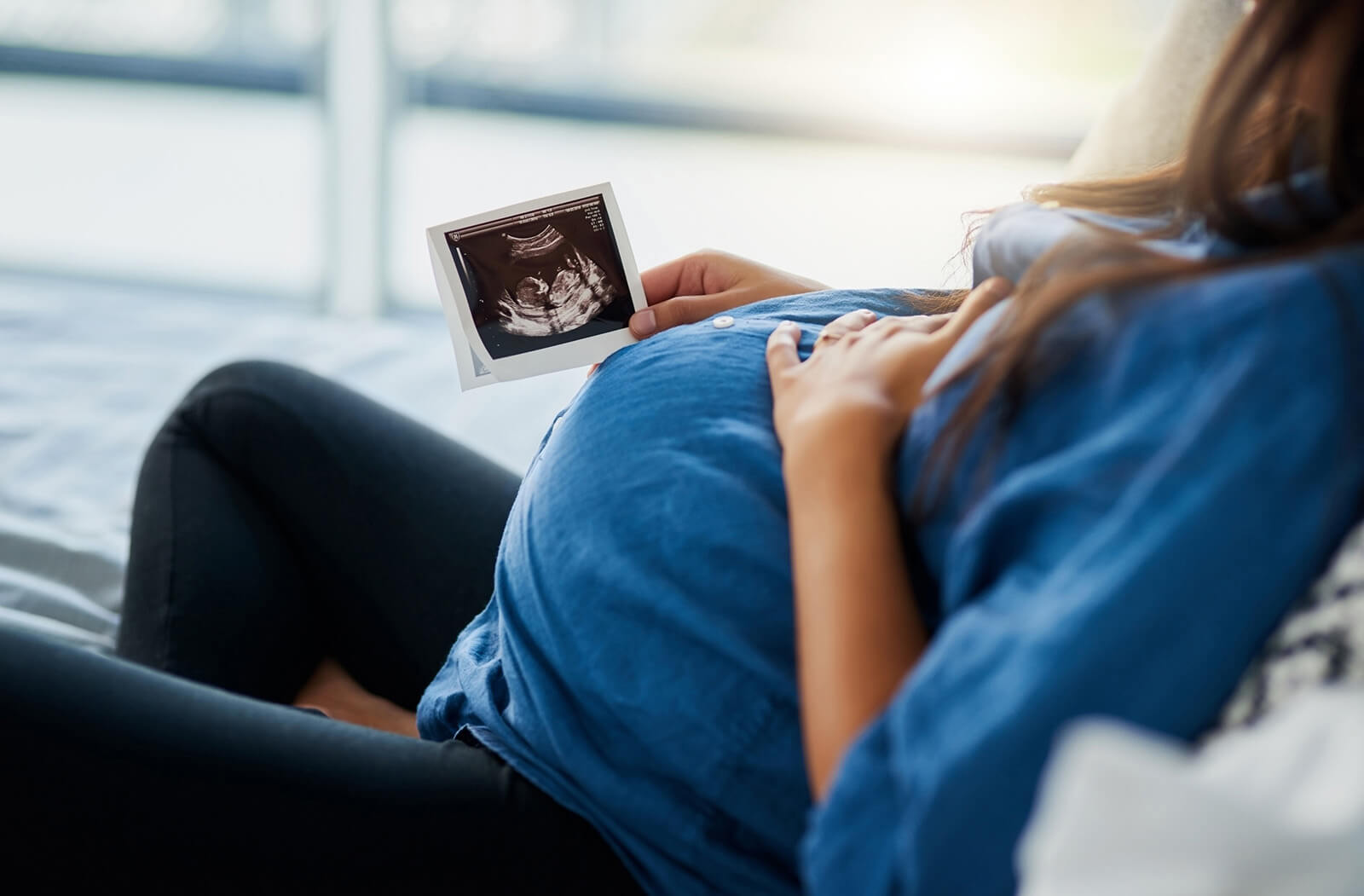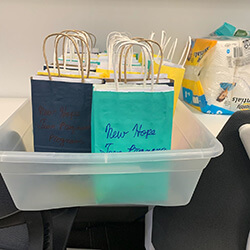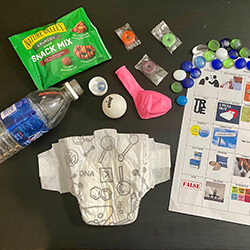
Medical Students Teach Life Saving Lessons to Expecting Teenage Mothers

Imagine being a pregnant teen trying to keep your baby — and yourself — healthy during a pandemic. For local teens, support and guidance came in the form of an online virtual pavilion taught by medical students from the University of Arizona College of Medicine – Phoenix.
The New Hope Teen Pregnancy program, led by program director and certified nurse-midwife, Tammalynn Bambulas, MSN, CNM, provides teenage-focused pregnancy curriculum at Valleywise Health, formerly Maricopa Integrated Health Systems. The program provides comprehensive, specialized prenatal patient care and life skill classes.
The coronavirus pandemic forced the program’s leaders to revamp the curriculum from in-person workshops to online sessions in summer 2020. Originally, the program resembled a typical classroom setting in which expecting mothers would attend in-person classes, two hours a week over four weeks at the New Hope Teen Childbirth Clinic on the Valleywise Health campus.

The program’s participants are current patients of Bambulas. Course materials were provided via goodie bags at their prenatal appointments. The goodie bags included healthy snacks, a bingo game card, and other hands-on, instructional materials. One such activity involves inserting a ping pong ball into a balloon to demonstrate the dilation of the cervix.
Students Become Instructors

“The team had done a great job putting together training materials and exercises for us that taught us so much about pregnancy, even extending to some information regarding the first few months of parenting,” said Alteri.
Bambulas developed a training day for medical students to learn how to teach the classes on their own. After training in New Hope’s curriculum, students were assigned in teams of two or three to conduct two-hour workshops over the four-week period. The course load covered topics, including:
- Week 1 – Health Pregnancy: How pregnancy occurs, normal fetal development, healthy nutrition, healthy menu creation, safe exercises, weight gain recommendations, dangers of substance use in pregnancy, precautions and sex in pregnancy.
- Week 2 – Labor and Delivery: When to go to the hospital, coping techniques for natural birth, pros and cons of pain medications and epidural anesthesia, indications for a cesarean section, normal labor progress and support from designated support person.
- Week 3 – Postpartum and Planning for the Future: Postpartum care, career interests, next steps for career planning, future goals, plans for another baby and pregnancy prevention — with all methods of contraception covered in detail.
- Week 4 – Breastfeeding and Baby Care: Benefits of breastfeeding and tips for success, how to give a bath, change a diaper, calm a fussy baby and practice safe sleeping habits.
Expecting teenage mothers who attend all four sessions receive a free Pack-n-Play at the completion of the program. A Pack-N-Play provides a comfortable, safe place for a baby to sleep and play, whether at home or away. This crucial intervention measure can save a baby’s life by preventing Sudden Unexpected Infant Death Syndrome, among other causes of newborn morbidity.
Alteri continued, “Teaching this class was such a positive experience and a highlight of my fall. I loved the opportunity to support these young women and support the work at New Hope.”
Alteri, along with fellow Class of 2024 medical students Emily Galloway and Theresa Bui, will take over the New Hope student leadership responsibilities for the upcoming year.
Partnership Serves Crucial Need
The New Hope Teen Pregnancy program began in 2004 when director, Tammalynn Bambulas, MSN, identified the need for a teenage-focused pregnancy curriculum. Bambulas shared that her previous work with teenage patients propelled her idea to write the curriculum and launch the program within her new department.
Community service is an essential component of a medical student’s journey at the College of Medicine – Phoenix. Since 2009, the New Hope Teen Pregnancy program has partnered with the college. Students volunteer to teach classes, utilizing their medical skill sets and gaining experience with patients. The service hours also fulfill their “CHIP” requirements.
“At that time, there weren’t many volunteer options for UA medical students and those interested in going into obstetrics or adolescent medicine wanted a relevant volunteer opportunity. We began a wonderful partnership that has evolved over time,” said Bambulas.
“In return for their altruistic dedication, our students receive the amazing gift of working with a passionate and inspirational leader, Tammalynn Bambulas. She nurtures our students’ leadership skills and commitment to service through role modeling and empowerment, and the result is this remarkable program, which strengthens our ties to our community and to Valleywise,” said Stephanie Briney, DO, director of Service Learning at the University of Arizona College of Medicine – Phoenix.
Every year, the curriculum is revised by Bambulas based on the latest research, as well as input from the medical students. The students’ and program leaders’ combined objective to continue to offer the vital content to the vulnerable population of young expecting mothers, is a clear representation of their shared, enduring commitment to serve.
“The partnership between our college and New Hope is an outstanding example of the benefits of true ‘service learning,’” concluded Briney.
About the College
Founded in 2007, the University of Arizona College of Medicine – Phoenix inspires and trains exemplary physicians, scientists and leaders to advance its core missions in education, research, clinical care and service to communities across Arizona. The college’s strength lies in our collaborations and partnerships with clinical affiliates, community organizations and industry sponsors. With our primary affiliate, Banner Health, we are recognized as the premier academic medical center in Phoenix. As an anchor institution of the Phoenix Bioscience Core, the college is home to signature research programs in neurosciences, cardiopulmonary diseases, immunology, informatics and metabolism. These focus areas uniquely position us to drive biomedical research and bolster economic development in the region.
As an urban institution with strong roots in rural and tribal health, the college has graduated more than 1,000 physicians and matriculates 130 students each year. Greater than 60% of matriculating students are from Arizona and many continue training at our GME sponsored residency programs, ultimately pursuing local academic and community-based opportunities. While our traditional four-year program continues to thrive, we will launch our recently approved accelerated three-year medical student curriculum with exclusive focus on primary care. This program is designed to further enhance workforce retention needs across Arizona.
The college has embarked on our strategic plan for 2025 to 2030. Learn more.